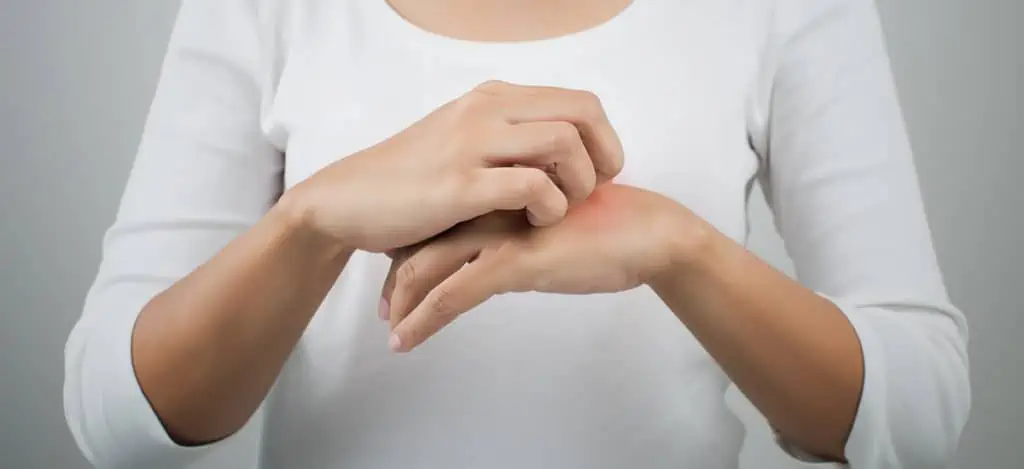Solutions include:
- Emollients and Barrier creams
- Mild soaps and detergents
- Short lukewarm baths
- Topical, oral and intramuscular corticosteroids
- Reduction of bacteria with oral and topical antibiotics
- Bleach Baths
- UVB phototherapy
- Fragrance free regimens
- Other systemic immunosuppressant medications
- Anti-histamines to control itching
Rashes are never fun, and unfortunately they are a very common occurrence. No matter what age, everyone is predisposed to them. Get relief and see how we can assist you today!
Dermatitis is a chronic inflammation of the skin that is often caused by an allergic reaction to some form of irritant or other chemical factors. It is characterized by dry, itchy pink or red rashes or swelling or sores on the skin. The condition usually appears within 48 hours following exposure to an allergen such as poison ivy or poison oak. It comes in many forms: stasis dermatitis, nummular dermatitis, and seborrheic dermatitis, for example. The condition is not dangerous or life-threatening but it can be very uncomfortable and even painful.
What does Dermatitis Look Like?
Commonly presents as pink or red rashes on the skin, although it can also show as blistering or red lines. Often the sufferer will experience pain, burning or stinging in affected areas. The skin may take on a scaly or greasy appearance as in the case of stasis dermatitis, which is usually found on the lower legs and ankles or inner side of the calf. Nummular dermatitis, or nummular eczema, appears as a stubborn, chronic rash on the hands, arms, legs, or buttocks, primarily in people over 55 years of age. Other forms may produce severe itching, scaling, swelling or blistering. Affected areas may be dry or moist or produce a white to yellowish coloration of the skin on the scalp, eyelids, face, shell of the ears, breasts, groin or underarms.
Dermatitis and its Causes
Is usually caused by an allergic reaction following exposure to irritants such as the resin from poison oak or poison ivy. Chlorine, strong soaps and detergents, topical ointments, perfumes, and certain medications may also produce allergic reactions causing dermatitis symptoms. Stress and autoimmune disorders or reactions are also thought to be causes of some forms. Genetics may also predispose people to dermatitis. If you believe that you may be suffering, consult with one of our board certified dermatologists who can help guide you toward the right treatment option for you.




